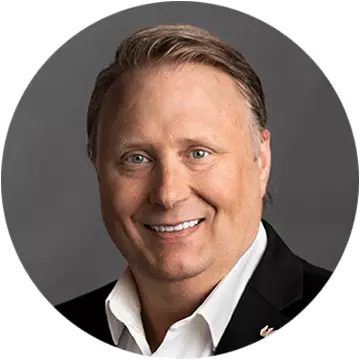Articles > Healthcare > Careers in public health
Careers in public health

Written by Michael Feder

Reviewed by Mark Jóhannsson, DHSc, MPH, Dean, College of Health Professions

Public health professionals can make a difference in a community, whether that’s through disease prevention, food and water safety, or better access to healthcare. Read on to explore careers that can help protect health on a large scale.
Considering careers in public health
How do healthcare professionals with careers in public health contribute to their communities? Healthcare experts play an important role in helping to further public health efforts in a variety of ways, including research, education, medicine and vaccines. Students also play an important role in public health, often contributing to research efforts while completing healthcare degree programs. Let’s discuss some careers in public health, requirements, and other information.
Depending on experience and educational background, some public health careers can be more attainable than others. Community health workers , for example, may only need a high school diploma, although a bachelor’s degree in health or health-related fields may help or be required. Some examples of entry-level roles are public health educators and community program coordinators.
For those pursuing leadership roles in public health, a Master of Public Health (MPH) can help teach skills and behaviors necessary to influence public health in a positive way. Some programs offer a flexible schedule those who want to pursue their education while working or meeting other commitments.
Examples of careers in public health
Completing a degree in healthcare can be a first step toward impacting the health of a community. Students interested in public health can obtain a degree in several healthcare fields and embark upon the following careers.
Public health administrator
Public health administrators assess community health issues and educate the public on common health issues, including mental health. They can work in both the public and private sectors, overseeing non-clinical business operations. Other duties include maintaining healthcare standards for their communities and developing outreach programs. In many cases, they also write grant proposals or organize fundraising.
Public health program manager
Program managers in public health coordinate multiple projects within a public health context. In addition to maintaining budgets and delegating tasks, they oversee recruiting and hiring and cross-department communication. They also enforce project deadlines and can have a hand in grant applications, compliance and budgets.
Health education specialist
Public health officer
Public health officers develop public health policies, manage programs, oversee disease control and prevention, and engage with their communities. In addition, they are responsible for some degree of health education for the general public. Responsibilities can vary based on specialization and a community’s specific needs.
Community health program coordinator
Health program coordinators manage and oversee health programs within the public health sector. They plan, implement and evaluate programs. In addition, they often manage people, budgets and community outreach.
Public health job outlook and salaries
Careers in public health are in an industry projected to grow. The job outlook for roles in community outreach roles and leadership positions in policy development to education specialists is positive, according to the U.S. Bureau of Labor Statistics (BLS), which projects 7% growth for health education specialists between 2022 and 2032. Community health workers are projected to see 14% growth
in their available jobs in that same time frame, much faster than the average across all occupations.
BLS Occupational Employment Projections, 2022-2032 is published by the U.S. Bureau of Labor Statistics. This data reflects BLS’ projections of national (not local) conditions. These data points are not specific to University of Phoenix students or graduates.
Public health salaries
Public health salaries vary according to many factors, including location, place of employment such as a hospital or social services organization, and level of experience. As of May 2023, community health workers earned between $35,560 and $75,980 , with a median wage of $48,200, according to BLS. BLS also reports that health education specialists earned between $39,630 and $107,920
, with a median wage of $62,860, as of the same time period.
Salary ranges are not specific to students or graduates of University of Phoenix. Actual outcomes vary based on multiple factors, including prior work experience, geographic location and other factors specific to the individual. University of Phoenix does not guarantee employment, salary level or career advancement. BLS data is geographically based. Information for a specific state/city can be researched on the BLS website.
A Master of Public Health is the degree program that most aligns with these job outcomes. However, an undergraduate degree is needed to pursue a master’s. Many students begin their journey to an MPH with a healthcare-related degree, like a Bachelor of Science in Health Administration. In the program, you’ll learn many of the basics that inform a professional health career, including skills in health administration and quality management.
For those who want to remain in the healthcare field but not necessarily pursue a career in public health, an option is a Master of Health Administration. In addition to polished healthcare skills, you’ll learn strategies that can help you assume a leadership role in a public health setting.
Education for careers in public health
If you’re interested in learning more about careers in public health, University of Phoenix offers several online programs:
- Bachelor of Science in Health Administration
- Bachelor of Science in Health Management
- Master of Public Health with a concentration in Community Health Leadership
Contact University of Phoenix for more information.

ABOUT THE AUTHOR
A graduate of Johns Hopkins University and its Writing Seminars program and winner of the Stephen A. Dixon Literary Prize, Michael Feder brings an eye for detail and a passion for research to every article he writes. His academic and professional background includes experience in marketing, content development, script writing and SEO. Today, he works as a multimedia specialist at University of Phoenix where he covers a variety of topics ranging from healthcare to IT.

ABOUT THE REVIEWER
Mark Jóhannsson is the Dean of the College of Health Professions. He has a career spanning over 35 years of healthcare management, public health practice, higher education administration, teaching and clinical/behavioral research within corporate, community and academic settings. He has served as both an educational and keynote speaker, and he has been published in a variety of peer-reviewed and periodic literature.
This article has been vetted by University of Phoenix's editorial advisory committee.
Read more about our editorial process.


